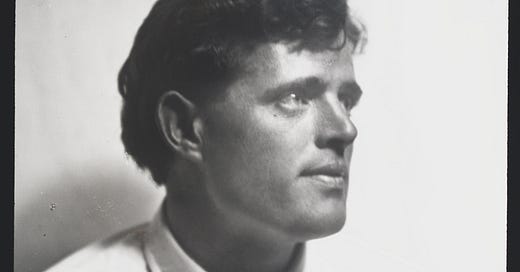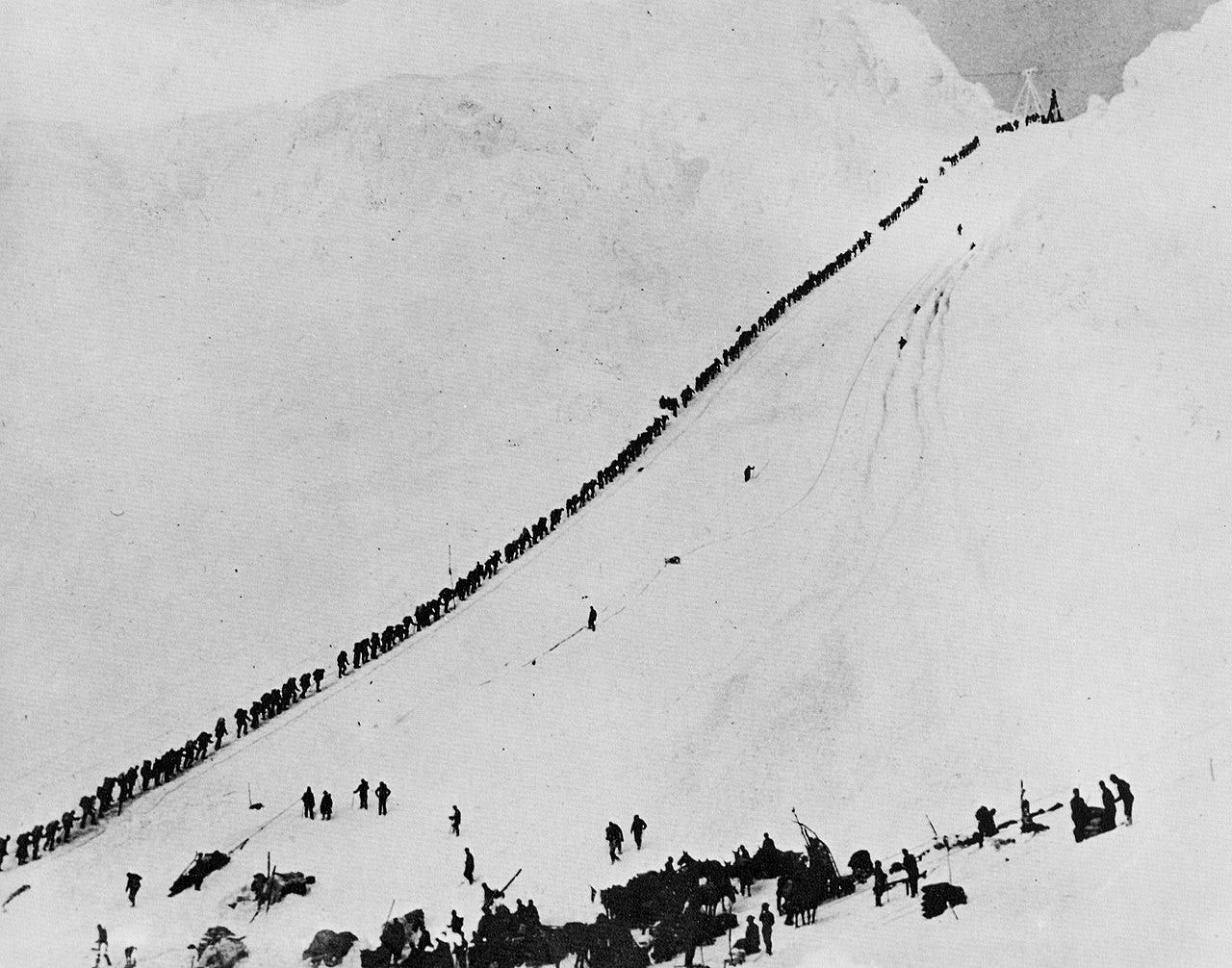Jack London Part II
Note: This section below about Jack London's adult life follows up on Friday's post about his early years.
"I had four preferences: first, music; second, poetry; third, the writing of philosophic, economic, and political essays; and, fourth, and last, and least, fiction writing. I resolutely cut out music as impossible, settled down in my bedroom, and tackled my second, third and fourth choices simultaneously. Heavens, how I wrote! Never was there a creative fever such as mine from which the patient escaped fatal results. The way I worked was enough to soften my brain and send me to a mad-house. I wrote, I wrote everything—ponderous essays, scientific and sociological, short stories, humorous verse, verse of all sorts from triolets and sonnets to blank verse tragedy and elephantine epics in Spenserian stanzas. On occasion I composed steadily, day after day, for fifteen hours a day. At times I forgot to eat, or refused to tear myself away from my passionate out-pouring in order to eat." - Jack London
Jack's journey from using his brawn to relying on his intellect began with his enrollment at the University of California, Berkeley. However, the financial burden of school proved too much, and he dropped out after a single semester. This setback did not deter him. Jack threw himself into writing. And as he did with everything, he did so with all his effort. As he writes in the quote above, it consumed him. But despite this relentless drive, his early work faced setbacks. He sent his stories to publications, most of whom sent rejection letters back, leaving Jack demoralized, questioning his path, and struggling financially.
Then, a turning point came in 1897. Lured by the prospect of wealth and adventure, Jack decided to join the Klondike Gold Rush. Jack embarked on the journey, braving the frozen wilderness of northwestern Canada and surviving on meager rations. Like many, he fell victim to the harsh conditions of the region and became ill. After months of suffering, he abandoned his quest and returned home sick and broke.
Although the Klondike didn't provide the gold he had hoped for, it gave him something far more valuable—a wealth of experience and inspiration. Jack found stories in the raw, unfiltered reality of life in the wilderness—the brutal struggle for survival, the indifference of nature, and the enduring resilience of the human spirit. These themes became central to his stories and formed the core of what would become some of his most famous works, including The Call of the Wild and White Fang. It also led to his first book, The Son of the Wolf. The following is a passage that captures the raw power of both the experience and his writing,
Keep reading with a 7-day free trial
Subscribe to Historical Snapshots to keep reading this post and get 7 days of free access to the full post archives.





